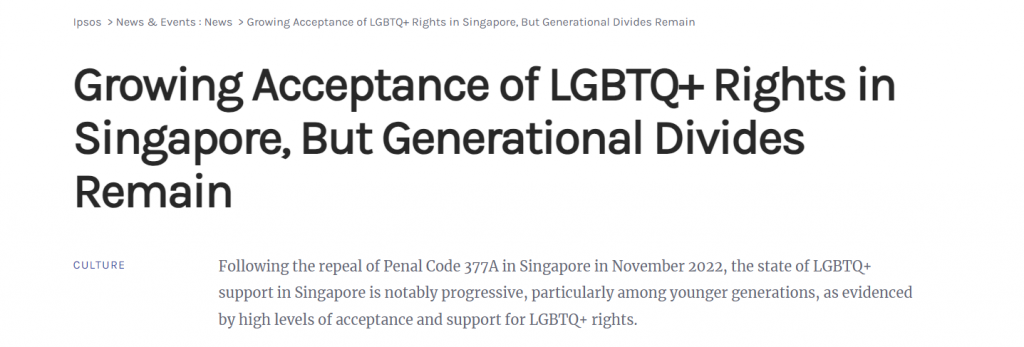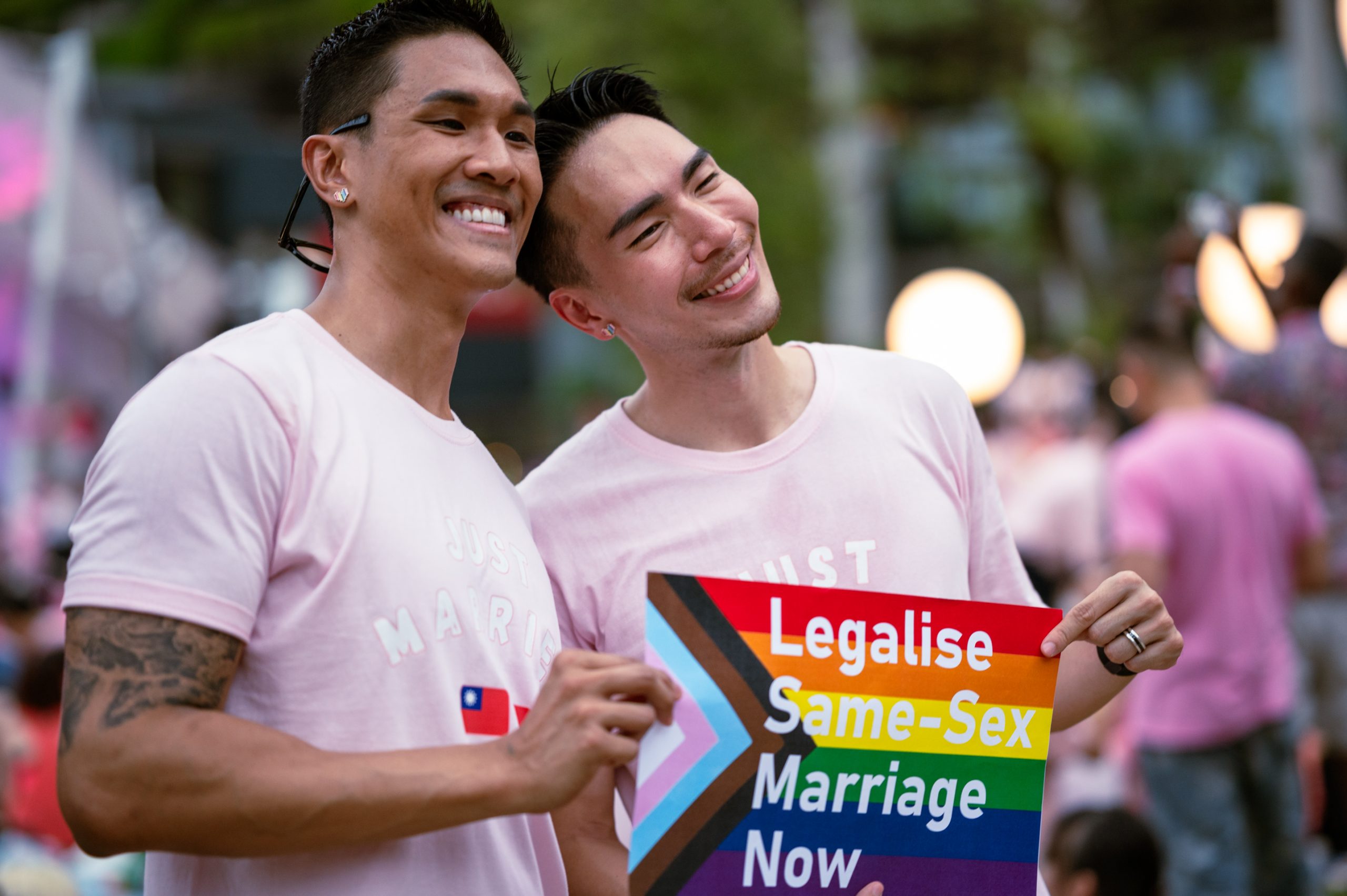Top Image: Benjamin Tan / RICE File Photo
The headline doesn’t look suspicious at first glance. After the homophobia-driven controversy that kicked off this year’s Pride Month, Singaporeans being ‘on the fence about LGBTQ issues’ sounds like an improvement.
Then you scroll about halfway down and unearth the most significant statistic in the article.
ADVERTISEMENT

You start getting sceptical about the headline. You google this IPSOS survey The Straits Times is referencing, and you find their title.

Push and Pull
The reason becomes clearer when you study how the media generally handles news surrounding the LGBTQ+ community.

They’re often utilising the language of neutrality. Phrases like “discussions/disagreements”, “on the fence”, and “undecided” maintain the narrative of Singaporean uncertainty.
ADVERTISEMENT
We’re always considering the voices of the LGBTQ+ activists against detractors like religious groups and most recently—the older generation. It’s a constant push-and-pull. Objective and balanced like a news article should be.
The headline references statistics about LGBTQ+ issues where the majority of Singaporeans were undecided: 43 percent of Singaporeans neither support nor oppose LGBTQ+ PDA. Another 40 percent aren’t sure how to feel about LGBTQ+ Singaporeans coming out publicly.
Yet, it’s obvious that these concerns are nuanced. PDA is a cultural issue—it’s just iffy, gay or straight. Also, these issues aren’t that important to queer people. No one’s fighting for the right to canoodle on the train.
Did the survey even present a narrative of neutrality? We dug deeper, and there were so many findings to the contrary. 73 percent of Singaporeans believe LGBTQ individuals should be protected from discrimination. A whopping 66 percent believe transgender teens should be allowed to seek gender affirming care with parental consent, 11 percent higher than the global average.
Crucially, neutrality cannot be constructed, even if you’re scared to present something controversial. Data cannot be cherry-picked to prove a ‘neutral’ insight. Because that’s old news.
Making Headlines
It took a long time for us to get to this point. The battles to repeal 377A were numerous and storied. Inclusivity and acceptance takes time, and we should celebrate every bit of progress made.
It’s especially important when the government often cites this Singaporean indecisiveness as a reason to not progress queer rights too quickly. But it’s our job as the media to signpost when attitudes shift so everyone’s aware of our own steps towards readiness.
All the more reason for the loudest voice—the media—to amplify the good news.
As Singaporeans become more and more accepting of LGBTQ+ issues, it’s going to get harder to defend status quo narratives.
So, what will the headline look like next year?





